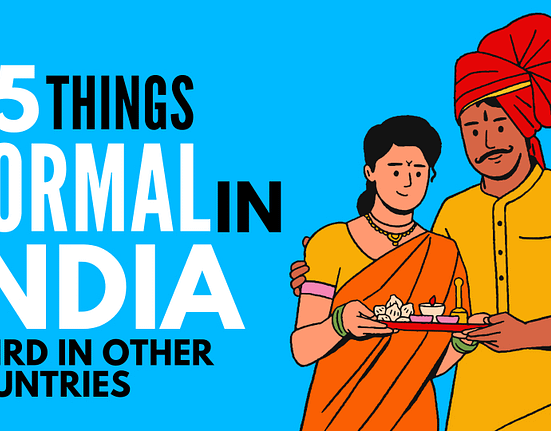Last updated on October 4th, 2024 at 01:41 pm
Sex is vital for physical and mental well-being, boosting mood, easing stress — and deepening intimacy. It also enables procreation, contributing to new life.
Opinions on premarital sex differ based on culture, religion and personal convictions. Some faiths condemn it, while others see it as a personal decision or a way to express love. Ultimately, whether premarital-sex is deemed sinful depends on personal values and societal standards.
In this blog post, we will explore 28 essential facts about sex before marriage — shedding light on the physical, emotional and social aspects of this intimate act.
So, Let’s get started.
1. Premarital Sex in the United States is a Societal Norm

A vast majority of Americans engage in premarital sex. This trend has been consistent over several decades. Studies show that engaging in sex before marriage is a common behavior among Americans. It reflect a societal norm rather than an exception.
2. Historical Consistency of Sex Before Marriage
Even among women born in the 1940s, about 90% had premarital sex. Premarital sex is not a contemporary phenomenon but has been a prevalent practice throughout different generations. [1]
3. By Age 44, 95% of American Had Premarital Sex
By the age of 44, 99% of Americans have had sex. Interestingly, 95% had it before marriage. This statistic shows that premarital sex is a near-universal experience by middle age.[2]
4. Late Abstainers Still Engage in Premarital-Sex
Those who abstained until age 20 or older, 81% eventually had premarital sex by age 44.
Delaying sexual activity does not necessarily equalize waiting until marriage, as most late abstainers still engage in sex before marriage. [3]
5. Sexual Activity and Marriage Waiting
People are waiting longer to marry — resulting in a longer period of sexual activity outside of marriage.
Societal shifts in the timing of marriage have prolonged the period during which individuals are sexually active without being married. [3]
6. Need Information to Protect Against Accidental Pregnancies
Young adults need correct information to safeguard themselves against both unplanned pregnancies and sexually transmissible infections. With the prevalence of premarital sex — there is a serious need for education on safe sex exercise. [3]
7. Religious Devoutness Increases Sexlessness
A substantial increase in sexlessness among bachelor Americans is observed among the religiously devout. Those with robust religious beliefs are more likely to abstain from sex — contributing to a rise in sexlessness within this class. [6]
8. Doubling of Abstinence in Individual under Age 35
The percentage of individuals under 35 abstaining from sex more than doubled from 2008 to 2021. There has been a noteworthy increase in sexual abstinence (within young adults) over the past decade.[6]
9. Stable Opinions on Premarital Sex
Opinions among never-married individuals under 35 with reference to premarital sex have stayed stable, with a majority approving of it. Despite changes in behavior – the common approval of premarital-sex has not shifted considerably. [6]
10. Correlation of Pornography and Increased Sexual Activity
Those who do not watch pornography are more likely to be sexless compared to those who do. Viewing pornography may be linked with a higher likelihood of engaging in sexual activity. [6]
11. Religious Attendance Increases Sexlessness

Regular religious service attendance correlates with higher rates of sexlessness among never-married young adults. Religious practices and community involvement can influence personal choices regarding sexual activity. [6]
12. Increasing Premarital Sex in Ethiopia
In Debretabor town, Ethiopia, the prevalence of premarital sex among high school youths was 22.5%.
This statistic provides insight into the prevalence of premarital sex in specific international contexts.
Cultural and societal changes may contribute to the increasing rates of premarital sex in specific countries. [13]
13. Emotional Connections are Common Cause for Initiation of Sexual Activity among Youths
The majority had their first sexual intercourse between ages 15–19, often due to falling in love. Emotional connections are a common reason for the initiation of sexual activity among youths. [13]
14. Risk Factors for Premarital Sex
Not attending religious education, having romantic partners, alcohol consumption, peer pressure and substance use are predictors of premarital sex.Certain behaviors and lack of religious education are associated with a higher likelihood of engaging in premarital sex. A complex interplay of social, economic and personal factors can affect an individual’s sexual behavior.[13]
15. Global HIV/AIDS Impact on Youth
Youths account for a significant portion of new HIV infections, highlighting the importance of safe sex education. The prevalence of HIV/AIDS among young people underscores the need for awareness and prevention strategies. [13]
16. Pre-Marital Sex Consequences in Sub-Saharan Africa
Premarital sex can lead to illegal abortions, HIV infections and school dropouts in Sub-Saharan Africa. The repercussions of premarital sex in certain regions can be severe, affecting health and education. [13]
17. Urban vs. Rural Differences Influences Premarital Sex
Urban residence and better economic background increase the probability of premarital sex. Socioeconomic status and urban living conditions can influence sexual behavior patterns. [19]
18. Media Exposure
Regular exposure to mass media is associated with a higher risk of premarital sexual intercourse. Media consumption can impact attitudes and behaviors regarding sex.
Research suggests that exposure to sexual content in the media, including television, movies and online platforms, can influence adolescents’ sexual behaviors and attitudes toward sex before marriage. [19]
19. Wealthy People More Likely to Have Multiple Partners
Wealthier individuals are more likely to have multiple premarital sex partners at a delayed age. Economic status may afford individuals more possibilities for sexual encounters. [19]
20. Biblical Perspective on Premarital Sex
Bible considers premarital sex a sin and emphasizes sexual purity. Religious texts often present moral guidance that influences personal beliefs and behaviors regarding sex. [22]
21. STI Prevention
Safe sex practices are crucial to prevent the spread of sexually transmitted infections (STIs). Evidence shows that consistent and correct condom use significantly reduces the risk of contracting STIs. Safe sex practices are important for individuals who are sexually active, regardless of marital status.
22. Views on Premarital Sex Around the World
A study in 2014 looked at how people around the world viewed sex before marriage. The study found that in countries with mostly Muslim people, like Malaysia, Jordan and Pakistan, most people (over 90%) thought it was wrong. On the other hand, in Western European countries like Spain, Germany and France, most people (less than 10% disapproval) 90% were okay with it. [20]
23. Muslims achieve a 40% abstinence rate in premarital sex
A 2013 study published in 2013 revealed interesting statistics on premarital sex across religious affiliations. Over 60% of Muslims surveyed indicated having had premarital sex. This figure was comparable to Hindus (65%). Christians, particularly those in Europe and North America, showed a slightly higher prevalence at 71%. Jewish and Buddhist respondents reported the highest percentages, with over 84% and 85% respectively, having engaged in premarital sex. [21] [23]
Read Also: 25 Funny Facts About Marriage (Make You Laugh and Think)
24. Rising Age at First Marriage in the United States
People in the United States are waiting much longer to get married than they did in the past. A study showed that between 1954 and 2003, the median age of first marriage for women increased from 22.1 years to 25.8 years and for men from 24.4 years to 27.4 years. This trend means people are spending more time as adults before getting married. [24]
25. Jewish Perspectives on Premarital Sex

The Jewish perspective on premarital intimacy is nuanced. While the Torah does not explicitly forbid such relationships, they are generally discouraged in order to uphold the sanctity of marital relations. Historical viewpoints have varied, with some medieval rabbis showing leniency in specific circumstances.
However, the Torah clearly prohibits sexual activity during a woman’s menstrual cycle, regardless of marital status. While concubinage was once accepted, it is now rare. Modern Jewish thinkers, particularly from Liberal movements, advocate for a reevaluation of traditional attitudes toward premarital sex, aiming to align ethical values with contemporary realities.[25]
26. Effect of Sex Before Marriage on Relationship Quality
Cornell University study investigated the link between premarital sex and relationship quality. The research implies that delaying sexual intimacy might be favorable for couples. Their judgments disclosed that couples who waited for sexual intimacy declared higher levels of overall relationship quality compared with those who were sexually active early on.
The study proposes that this delay permits partners to focus on building a robust foundation. This comprises exploring compatibility, making well-informed decisions about commitment and nurturing emotional intimacy.[26]
27. Australians and Premarital Sex: Shifting Views
Studies reveal a generational shift in Australia regarding sex before marriage. A 2014 Second Australian Study of Health and Relationships involving over 20,000 individuals, found 87% of Australians approve of premarital sex. This contrasts with religious communities, where a 2011 survey (National Church Life Survey) showed nearly half (48.6% of Christian attendees) believe it’s wrong.[27]
28. Higher risk of substance abuse, poorer psychological health and academic performance.
The study by Jason Ong et al. in 2013 found that sexually active Chinese high school students (Grades 6 to 12 high school students in Hong Kong (3498), Macau (6286) and Taipei (4111)) in three major Asian cities had higher rates of alcohol consumption, with over 90% having tried alcohol, more than 50% being regular drinkers, over 30% engaging in binge drinking and nearly 50% reporting depression in the past 12 months, emphasizing the need for targeted interventions for substance abuse and mental health within high school sexual education.[28]
Conclusion
These 28 facts about sex before marriage shed light on various aspects of sex before marriage, backed by scientific evidence and research. While attitudes, norms and experiences vary across cultural, religious and individual contexts — understanding the complexities and consequences of premarital sex is vital for promoting healthy sexual behaviors, relationships and overall well-being.









